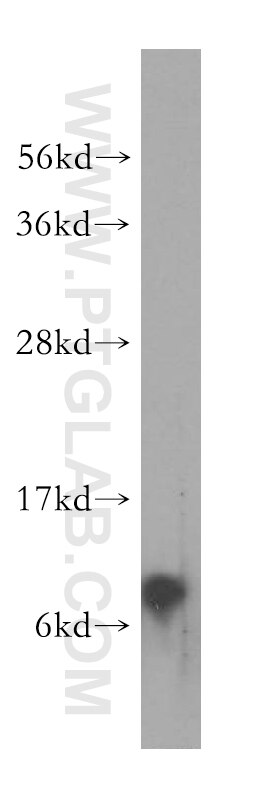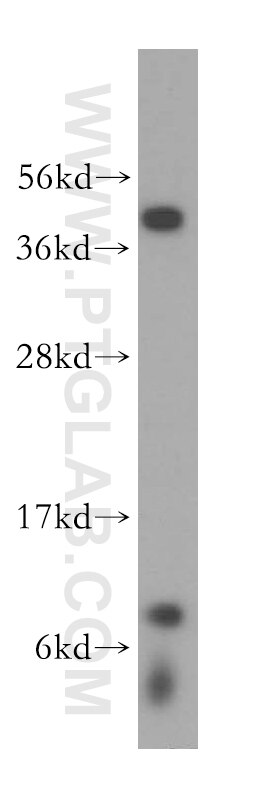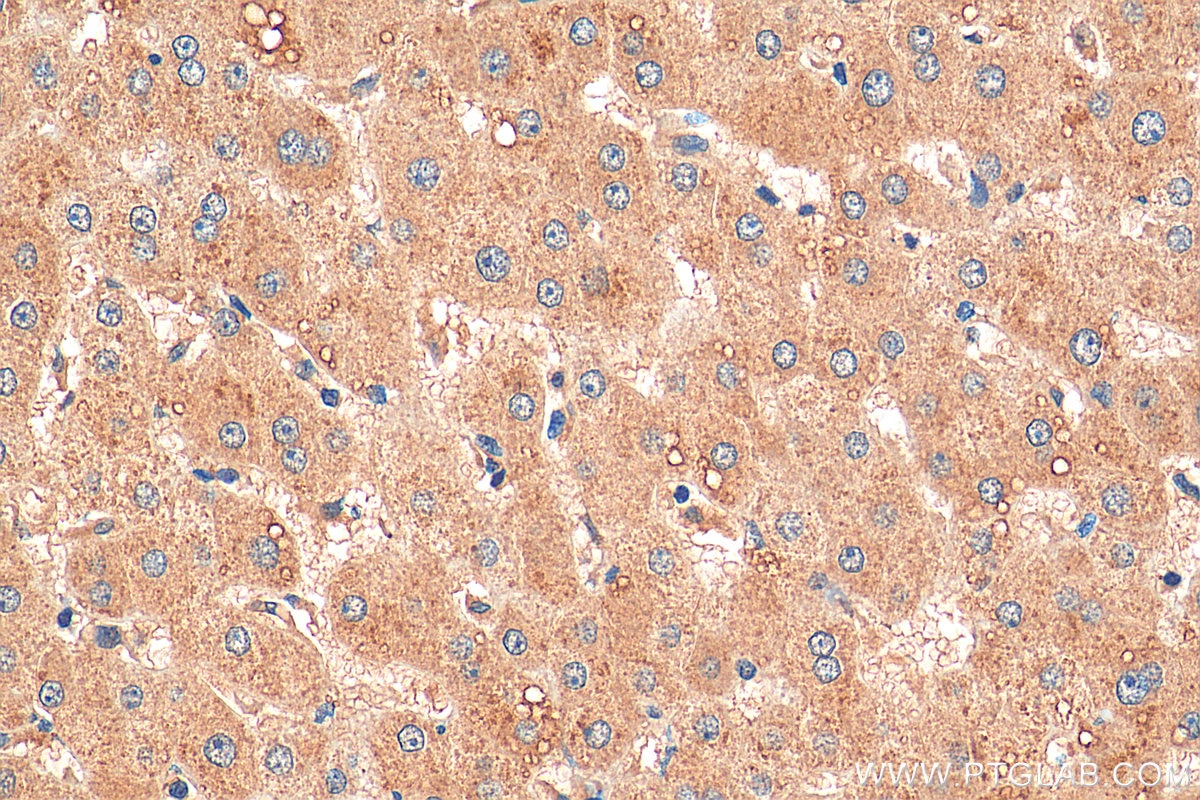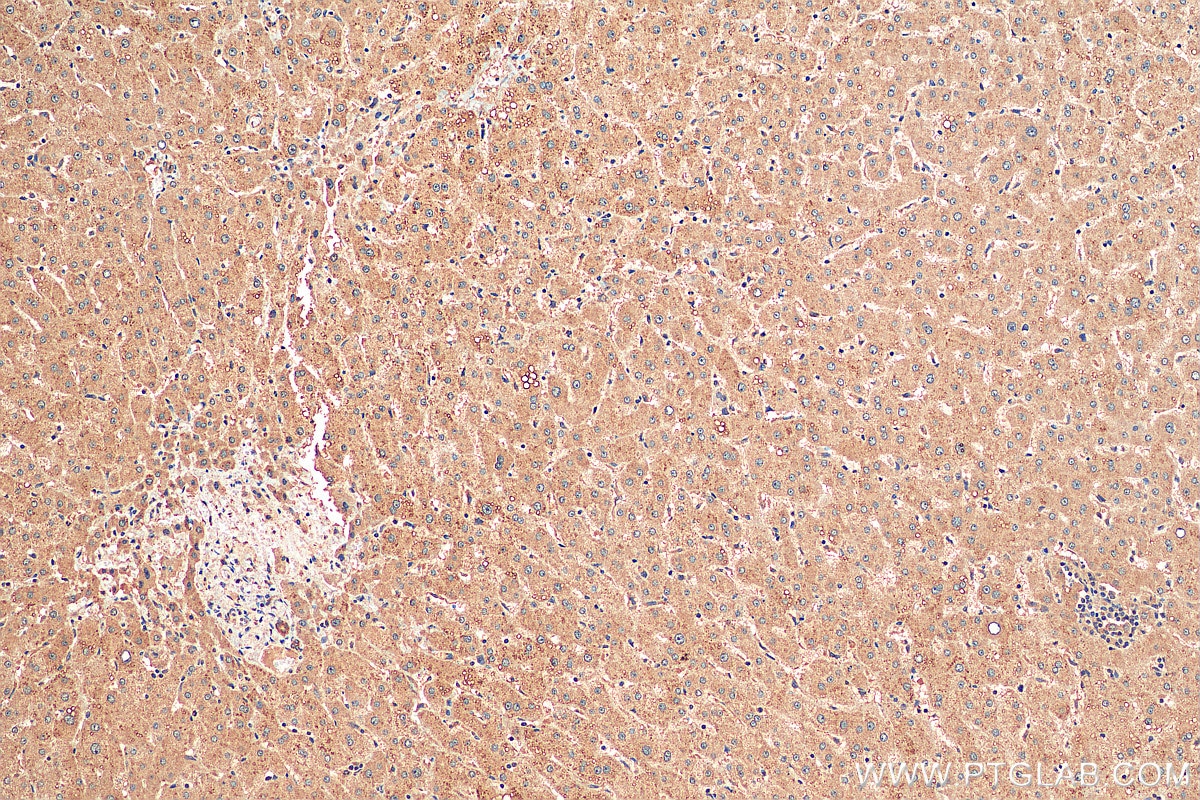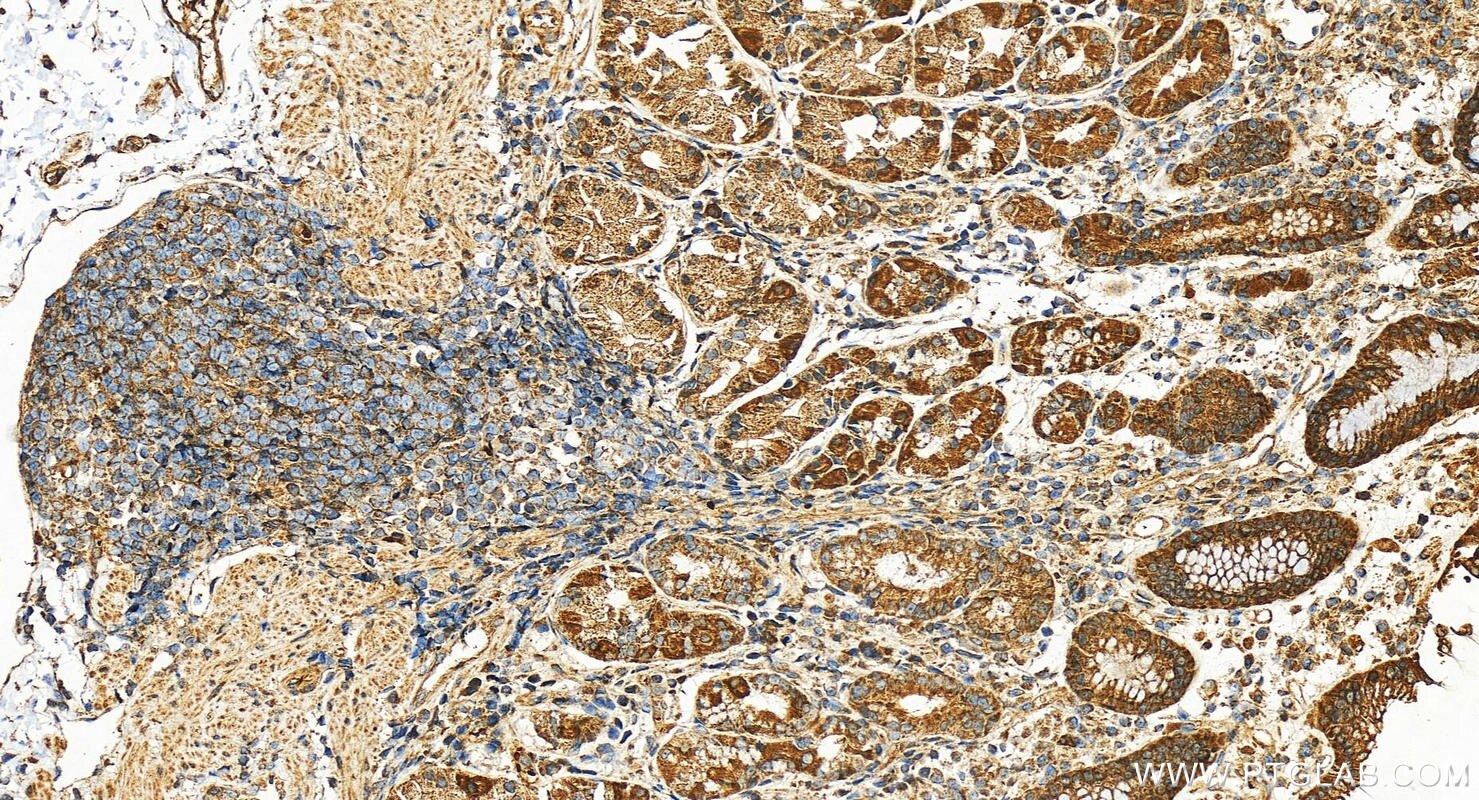Tested Applications
| Positive WB detected in | human brain tissue, HeLa cells |
| Positive IHC detected in | human liver tissue Note: suggested antigen retrieval with TE buffer pH 9.0; (*) Alternatively, antigen retrieval may be performed with citrate buffer pH 6.0 |
Recommended dilution
| Application | Dilution |
|---|---|
| Western Blot (WB) | WB : 1:500-1:1000 |
| Immunohistochemistry (IHC) | IHC : 1:50-1:500 |
| It is recommended that this reagent should be titrated in each testing system to obtain optimal results. | |
| Sample-dependent, Check data in validation data gallery. | |
Published Applications
| WB | See 5 publications below |
Product Information
17257-1-AP targets NDUFA3 in WB, IHC, ELISA applications and shows reactivity with human samples.
| Tested Reactivity | human |
| Cited Reactivity | human |
| Host / Isotype | Rabbit / IgG |
| Class | Polyclonal |
| Type | Antibody |
| Immunogen | NDUFA3 fusion protein Ag10912 Predict reactive species |
| Full Name | NADH dehydrogenase (ubiquinone) 1 alpha subcomplex, 3, 9kDa |
| Calculated Molecular Weight | 65aa,7 kDa; 84aa,9 kDa |
| Observed Molecular Weight | 9 kDa |
| GenBank Accession Number | BC011021 |
| Gene Symbol | NDUFA3 |
| Gene ID (NCBI) | 4696 |
| RRID | AB_2150631 |
| Conjugate | Unconjugated |
| Form | Liquid |
| Purification Method | Antigen affinity purification |
| UNIPROT ID | O95167 |
| Storage Buffer | PBS with 0.02% sodium azide and 50% glycerol , pH 7.3 |
| Storage Conditions | Store at -20°C. Stable for one year after shipment. Aliquoting is unnecessary for -20oC storage. 20ul sizes contain 0.1% BSA. |
Protocols
| Product Specific Protocols | |
|---|---|
| WB protocol for NDUFA3 antibody 17257-1-AP | Download protocol |
| IHC protocol for NDUFA3 antibody 17257-1-AP | Download protocol |
| Standard Protocols | |
|---|---|
| Click here to view our Standard Protocols |
Publications
| Species | Application | Title |
|---|---|---|
iScience Mutational burden of XPNPEP3 leads to defects in mitochondrial complex I and cilia in NPHPL1 | ||
J Biol Chem Complex I mutations synergize to worsen the phenotypic expression of Leber's hereditary optic neuropathy. | ||
Invest Ophthalmol Vis Sci Assocation Between Leber's Hereditary Optic Neuropathy and MT-ND1 3460G>A Mutation-Induced Alterations in Mitochondrial Function, Apoptosis, and Mitophagy. | ||
Sci Rep HDAC/H3K27ac-mediated transcription of NDUFA3 exerts protective effects on high glucose-treated human nucleus pulposus cells through improving mitochondrial function | ||
Cell Stem Cell Selective translation of nuclear mitochondrial respiratory proteins reprograms succinate metabolism in AML development and chemoresistance |
